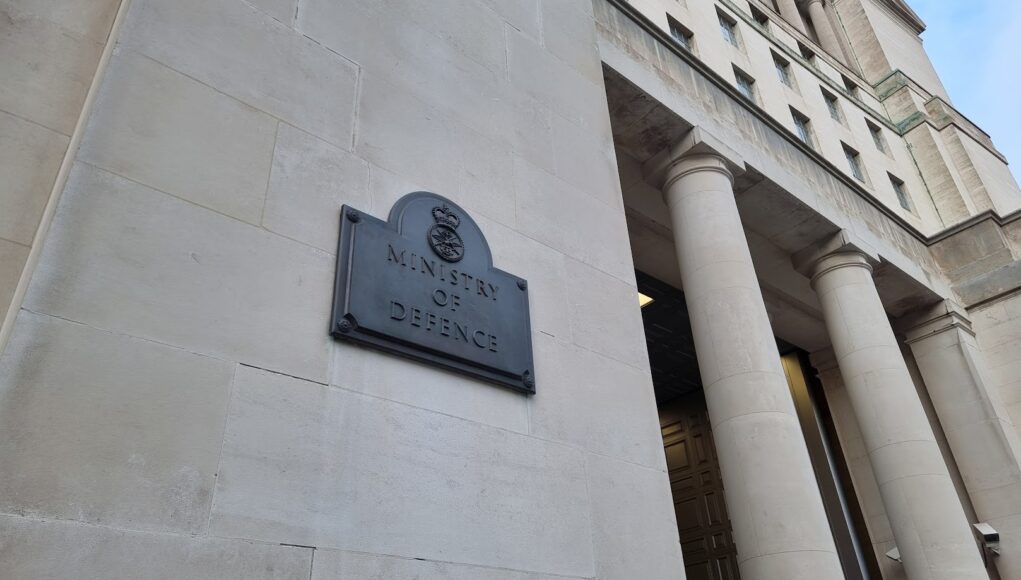Britain’s deep gratitude to veterans, armed forces personnel, and their families will be recognised with the passing of new legislation for Armed Forces communities, Labour leader Keir Starmer is set to announce today, as the country prepares to commemorate 80 years since the D-Day landings that turned the tide of the Second World War.
A new Armed Forces Commissioner will be established as an independent champion for service personnel and their families to improve everyday life.
This will be legislated for in the first King’s Speech. New legislation will also put the Armed Forces Covenant fully into law, strengthening the rights of veterans, service personnel, and their families.
“I have changed the Labour Party to put it back into the service of working people – and the ultimate service is that given by our veterans and armed forces personnel,” Starmer is expected to say, in the week that Labour committed to the Nuclear Deterrent Triple Lock, a Strategic Defence Review, and spending 2.5% of GDP on defence as soon as possible.
Labour’s plan for veterans, armed forces personnel, and their families:
According to the party, the new policies that Labour is announcing today include:
- New Armed Forces Commissioner: Holding the government to account with an independent champion for serving forces and their families by legislating for an Armed Forces Commissioner in the first King’s Speech.
- New Armed Forces Covenant: Ensuring everyone who serves or has served in the Armed Forces, and their families, are treated with fairness and respect by bringing the Armed Forces Covenant fully into law.
Labour states that these new laws are the first stage in their plan to improve everyday life for serving personnel, their families, and veterans. They also plan to work closely with veterans and service charities to develop the final legislation.
Announcing the plan in the South of England ahead of his attendance at D-Day commemorations, Keir Starmer is set to say:
“The ultimate service is that of our armed forces personnel and veterans. Britain owes a huge debt of gratitude for all they have given our country. My changed Labour Party, once again a party of service, will repay that commitment with a new package of support for veterans, service personnel and their families. We will establish a new Armed Forces Commissioner and enshrine a new Armed Forces Covenant fully into law.”
John Healey, Shadow Defence Secretary, is expected to add:
“Like so many people across Britain, Labour has deep respect for the serving men and women of our Armed Forces. Theirs is the ultimate public service.”
“Labour’s new laws will improve everyday life for those who serve and the families who support them. They will begin to right the wrongs for everyday Forces life with a new independent champion, a legal guarantee of fair treatment and ensuring our veterans are properly respected.”
“Labour will work with our Armed Forces Communities to renew the nation’s contract with those who serve and the families who support them. Labour is totally committed to spending 2.5% of GDP on Defence as soon as possible.”
Labour’s Ex-Military Candidates
Labour has selected 14 ex-military personnel to stand as PPCs in the upcoming election. According to the party, these candidates bring a wealth of experience and dedication to public service.
- Al Carns, the Labour candidate in Birmingham Selly Oak, served as a Colonel in the Royal Marines until last week. With 24 years of military service across the globe at some of the highest levels, he aims to continue his service to the country and its people through Labour.
- Louise Jones, the Labour candidate in North East Derbyshire, is an army veteran who previously served as an intelligence officer.
- Calvin Bailey CBE, the Labour candidate in Leyton and Wanstead, was a commanding officer in the Royal Air Force.














More “bull” from politicians. Both main parties are as bad as each other when it comes to the way the military are treated, and the Libs, Greens and SNP would probably turn them into a “Defence/Peace Corp”
Pretty sure Labour are looking to raid the defence budget so I’d add them to the list,
Yep, more bullshit and spin, means absolutely nothing…..
Love the way Starmer mentioned the way that his administration would tripple lock ( what ever the fu#k that’s supposed to mean) our nuclear weapons and order the 4 Dreadnought boats…
Boats that were ordered a decade ago, with all four now under construction….
Honestly, they open their mouths and nothing but half truths and bullshit drops out …
You can’t trust any of them, Labour will mean another 10 years of underfunded defence, with a pointless review moving deckchairs around the titanic with no more money…
Didn’t think you could leave the armed forces around 1st June and become an MP on 4th July – there used to be a significant airgap?
I can’t see how the independent Commissioner would work – he/she would clearly be outside the Chain of Command (ie outside MoD) but would hold a position in Government or would it be a Quango?
I would imagine it would be a Quango with legal powers…very much like the office of the information commissioner.
Well our Tony loved his army of shadowy Quangos, looks like his No1 fan boy, Mr U turn will be much the same…..
Quangos are really import things to be honest..they allow governance of something important. My practice is governed by a Quango..so you have the General Medical Council, the Nursing and Midwifery Council, the office of the information commissioner, financial regulator etc….if you are going to make sure something is regulated ( and sometimes things must be regulated) you need a Quango……
Quangos are great if they have ‘teeth’ and achieve concrete results. This new Armed Forces Commissioner must be able to direct the MoD to resolve issues brought to their attention by service personnel with a grievance.
Yes indeed, a commissioner must have teeth and be able to hold to account and force changes….I work with some of the health related regulators…and because of their powers they can make a difference. I have known NHS organisations closed down when regulators lost patients…generally speaking in healthcare you learn a very healthy respect for the quangos that oversee and check…careers are lost and businesses destroyed if they cross the lines the regulatory bodies set.
It’s a slight difference and nuanced but the tone around the 2.5% spending has changed…it’s moved from when the nations financial position allows..to “ as some as possible”….
….which is exactly the same. Unless of course he is going to bring in these increases as soon as possible when the nation can’t afford it. 😏
This is the thing, in reality it probably does not make a difference, but the perception will be different. As soon as possible is not perceived in the same as “when it’s favourable”….it’s like saying I will phone you as soon as possible..vs I will phone you when I have some free time..the first means your getting priority and im phoning you as soon as I’m not doing urgent things that are needed now…the second means I’m doing the urgent things, having my lunch , a wee break, chatting to Bob about tomorrows plans…taking a few non urgent calls and emails and getting to you in my own good time…
As you say it’s almost undoubtedly exactly the same thing…but it’s a changed up tone and gives a difference perception around urgency and where it is on the list.
Well, we will see I suppose. The Tories are/were (?) saying by 2030 and Labour are saying “when we can” so I don’t think we shoud be holding our breath my friend. 🙄
indeed….both need to be more focused.
More buearocracy,. A commissioner, one like the post office had perhaps, looking after people.😟
While I’m not holding my breath there is some hope that a Labour government might be more willing to tackle the issues causing the manpower crisis.
Such as sacking Capita for starters.
Hear, hear. Take it back in-house.
That would be of immediate benefit…it will depend on how well they were commissioned…if I was commissioning them the contract would have had a whole list of benchmarks and causes of contract breach that if failed would give me the power to end the contract..and if the MOD have actually been following up with contract breach notices..then it would be easy..without either of those it becomes a longer process ( you would need to gather the evidence of breach’s and issue the contract breach..wait for them to not make changes and improve..then if they don’t you can terminate…if you’ve not done this or the benchmarks around contract breach don’t exist in the contract ending it means you get taken to the cleaners in court..end up paying the full contract value anyway as well as costs….
I suspect none of it has been done to unless the MOD are willing to take the losses of the contract value..it will need to come to the end of its term….
There are two ways of looking at it.
Crapita are used to dealing with government and so the contracts are created and administered to be government proof.
On the other hand, sometimes Crapita will relinquish one contract, for reputational reasons, if another juicy one it on the table.
I’m amazed that they’ve lasted as long as they have. Stupid idea from the start.
Is the manpower problem caused by goverments or is it caused by young people not wanting to join? A number of NATO countries are in the same boat, some considering conscription (Sunak?). We also have the incompitents at Capita to consider. Time will tell but urgency is not a politicians favourite word is it?😉
Recruitment is not the issue, there are still plenty of people wanting to join up (though diversity targets are making the process needlessly long for some people). The bigger problem is retention, all three services are haemorrhaging experienced personnel because all of the perks have been systematically stripped away over the last 20 years. When it now costs people money to go away on deployment, they have no reason to want to stay. Retention initiatives have been put in place, but they get to the Treasury for funding approval and nothing moves past that point. Why should people stay in a job that often pays less than the civilian equivalent and, despite their media soundbites, is not cared about by the government?
I’ll believe it when I see it. ‘As soon as possible’ is no commitment at all. It is ‘possible’ right now, but no meaningful action ever backs up the platitudes.
So… another layer of management to go through to get stuff done…As soon as finances allow.
So that will be never then.
Also, on the intro by KS for all those 14 labour candidates what was it with them wearing medals?
Was it 11 Nov?
Remembrance Sunday?
Maybe not.
I’d set it up more like the regulator for rented hosing should be.
Escalating fines on the provider of the housing stock where it falls below statutory standards. As the provider is privatised…..
That way it incentivises them to get the stock fit for service personnel.
Also MOD can say it is in independent process. Don’t look at us guv.
Just a pity there’s still no push for a Forces Federation. They’re missing a trick as it would help with retention too I suspect.
Something Cameron had in his manifesto, then dropped it.
Sly bar steward.
Starmer has changed Labour, said Abbott, laughing. Laws are useless without the money. Where is the money?
Why not pass a law that bans young people from stabbing each other ? I had no idea it was that easy.
“You know…when you’ve been Quangoed!” as the ad. campaign nearly once said.
I’d settle for it to be compulsory for Veterans answering job vacancies to be given an interview (not the voluntary opt-in scheme that currently operates under the Covenant)
The only time any government take note is when they need us in an emergency. Empty promise as far as I am concerned.